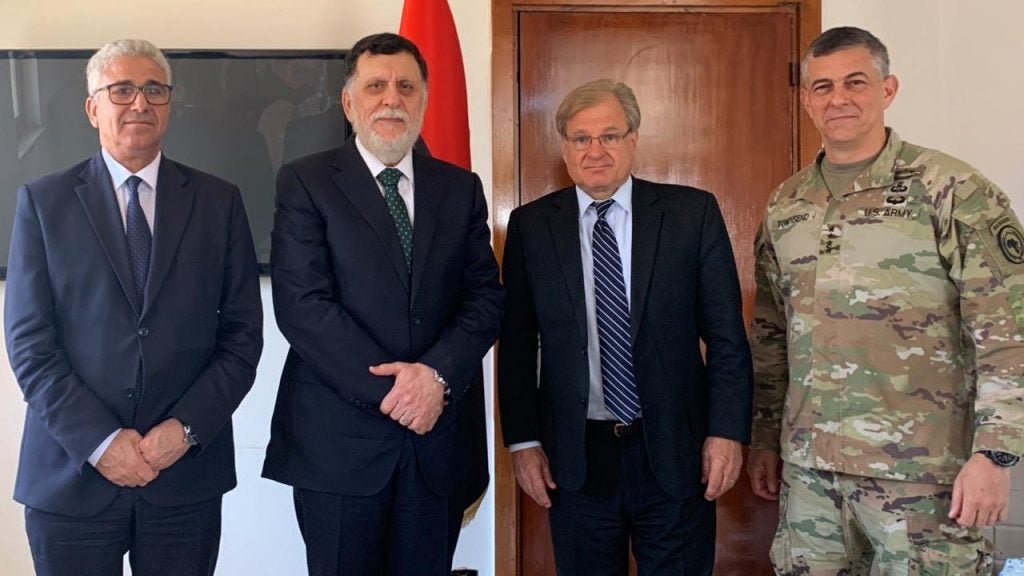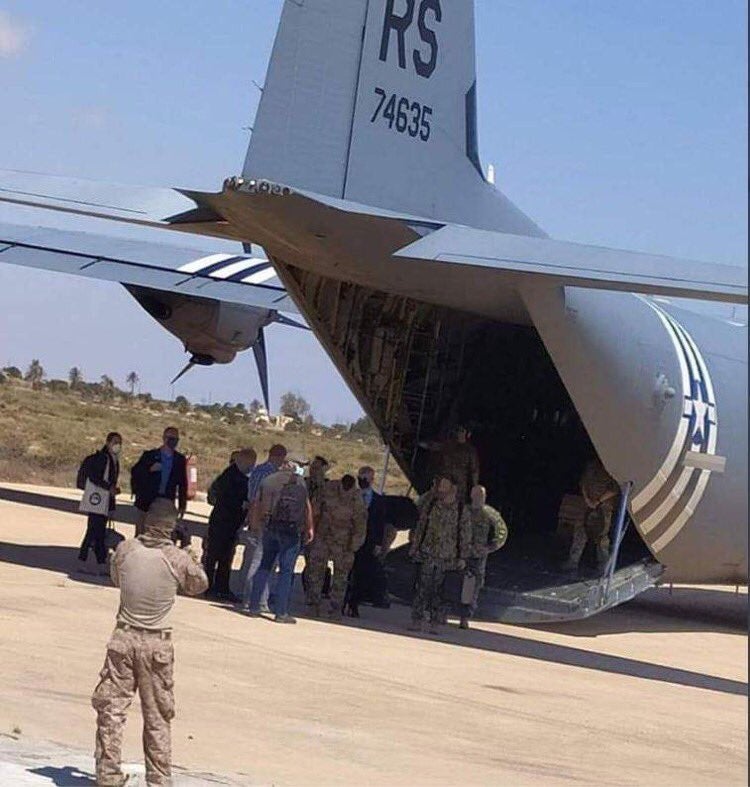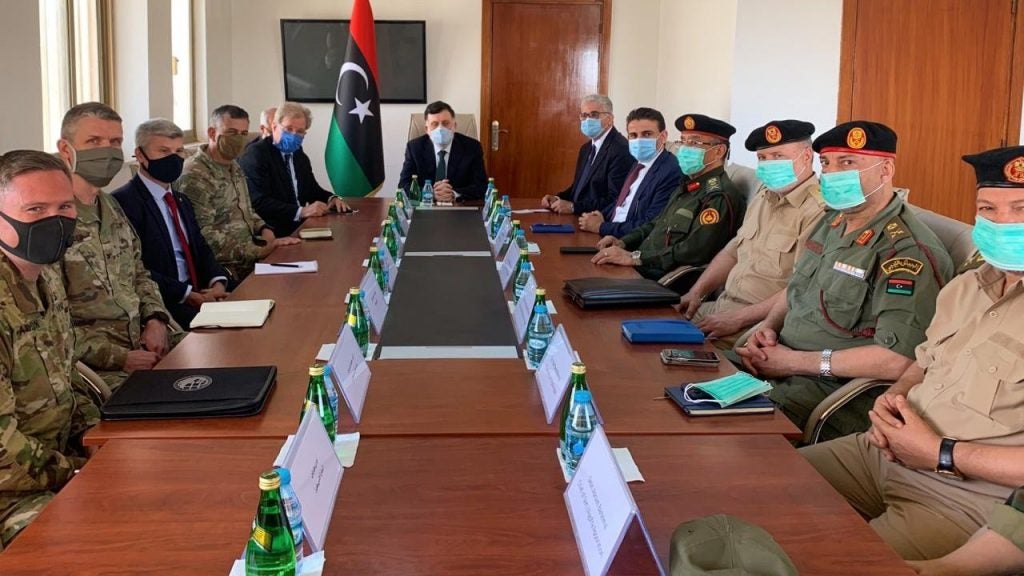US Ambassador to Libya and AFRICOM Commander Meet Top Libyan Government Officials
On 22 June, the US Ambassador to Libya, Richard Norland, and Commander of US Africa Command, General Stephen Townsend visited the Western Libyan city of Zuwara for a meeting with top officials of the Libyan Government of National Accord (GNA). Libyan officials present included Prime Minister Fayez Al-Serraj, Interior Minister Fathi Bashagha, Deputy Minister of Defence Colonel Salah Al-Namroush and other military officials.

According to the US Embassy in Libya, the meeting focused on the opportunities for a strategic pause for all parties involved in combat, with Ambassador Norland emphasizing US support for diplomatic efforts currently being spearheaded by the United Nations Support Mission in Libya. General Townsend spoke on the risks of the current conflict escalating, the risks of increasing Russian materiel support for the Wagner PMC and the strategic importance of freedom of navigation in the Mediterranean, saying:
“U.S. Africa Command provided the security that enabled this important Department of State engagement with Prime Minister Sarraj. We emphasized to the Libyan delegation that all sides need to return to UN-led ceasefire and political negotiations because this tragic conflict is robbing all Libyans of their future.”

The meeting comes shortly after the President of Egypt, Abdel Fattah el-Sisi threatened a direct intervention in Libya on Saturday. In televised remarks, he warned that a GNA capture of the coastal city of Sirte or the al-Jufra air base would be a “red line” that would trigger a direct intervention in Libya, claiming that “any direct intervention from the Egyptian state has now acquired international legitimacy”.
While the Egyptian Air Force conducted airstrikes in 2015, on purported Islamic State positions in Libya, after ISIS claimed responsibility for a massacre of Coptic Christians in the south of Libya, the Egyptian military has largely stayed out of the current fighting. Indeed, the Egyptian military’s inability to handle an Islamist insurgency in the Sinai Peninsula, as well as accusations of kidnapping and executing civilians that are later claimed to be killed militants, does not bode well for their performance in a direct intervention in Libya.
The statement was roundly condemned by the GNA, with the GNA Presidential Council stating that the threats were “a violation of Libyan sovereignty”. Taher Al-Sunni, the Libyan Permanent Representative to the United Nations, responded to the remarks as well, saying “draw your red lines in Sinai and send your troops there to liberate it from terrorism”.
Italy and Germany have joined US calls for a ceasefire since the threats, with the Italian Foreign Minister, Luigi Di Maio, additionally calling for increased enforcement of the arms embargo on the warring parties, saying “If we stop the arrival of weapons, or strongly reduce them, we will be able to reduce the aggressiveness of the Libyan parties in this conflict”.
In related news, a Libyan National Army (LNA) L-39 Albatros trainer crash-landed near the Libyan-Niger border on 21 June. The two pilots survived the crash landing, and are now in the custody of GNA tribal forces aligned with the GNA. The cause of the crash landing is not currently known.

